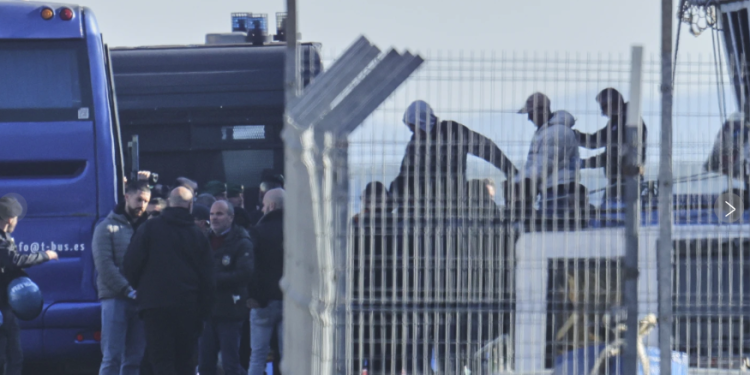Italian authorities have transferred another group of 26 rejected migrants to Italian-run detention centers in Albania, marking the latest implementation of a controversial agreement between Rome and Tirana.
The Italian navy ship Spica departed from Brindisi and docked in the Albanian port of Shengjin on Tuesday, carrying the group. After arrival, the migrants were expected to be moved to a second facility in Gjader, located about 20 kilometers inland.
This latest transfer follows the Italian government’s March decree, which expanded the use of Albania-based facilities to detain migrants who have been denied asylum and are awaiting deportation. These facilities, managed entirely by Italian authorities, were originally constructed to process asylum claims of migrants intercepted in the Mediterranean.
Uncertainty Surrounds Detentions
Despite the expansion of the program, legal hurdles continue. Italian courts previously blocked similar transfers, resulting in some migrants being returned to Italy. For example, local reports—still unconfirmed—suggest 16 of the 40 migrants transferred in April have already been sent back.
As of now, it is unclear how long migrants may be held in Albania, though Italy’s laws permit detention for up to 18 months while deportation is pending.
Background and Controversy
The detention centers were launched under a €800 million agreement signed in November 2023 agreement between Italy and Albania. The five-year deal allows up to 3,000 migrants per month intercepted in international waters by the Italian coast guard to be transferred to Albania for asylum processing or repatriation.
Italy has committed to accepting asylum seekers whose applications are approved, while rejected migrants may be deported directly from Albania. The migrants’ nationalities from this latest group were not disclosed.
The arrangement has drawn criticism from human rights advocates, who argue that outsourcing asylum processing to a non-EU country undermines migrants’ legal protections and access to fair procedures.
This comes amid a broader European debate over how to handle irregular migration, with several EU nations seeking legal pathways to deport migrants to third countries with no direct connection to the asylum seekers.









